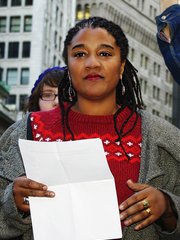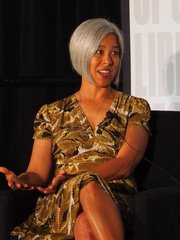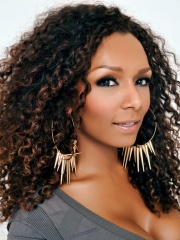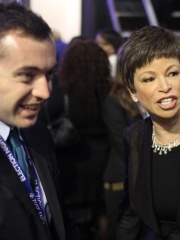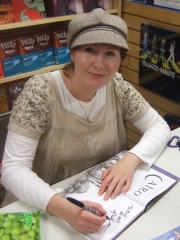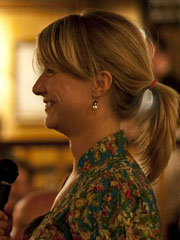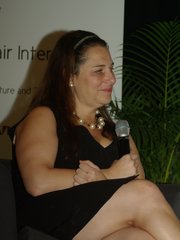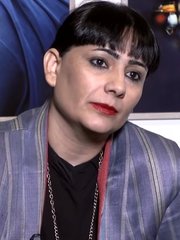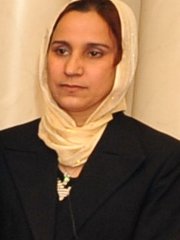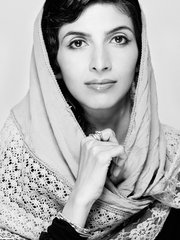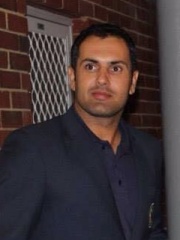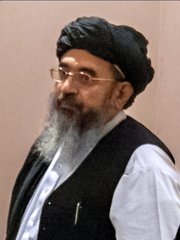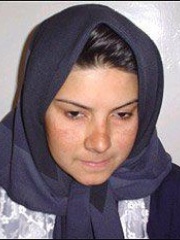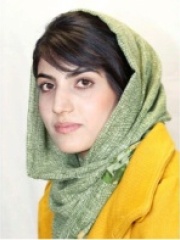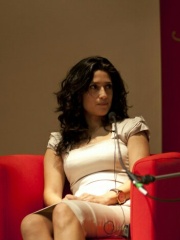Writer
Rangina Hamidi
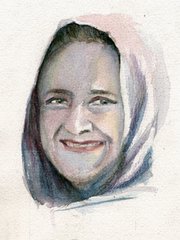
 Rangina Hamidi
Rangina Hamidi
Her biography is available in 14 different languages on Wikipedia. Rangina Hamidi is the 7,550th most popular writer, the 196th most popular biography from Afghanistan and the 16th most popular Afghan Writer.
Rangina Hamidi is most famous for her work as an Afghan-American activist and writer, focusing on women's rights and education in Afghanistan. She is also known for her role in promoting social change and her contributions to various literary and advocacy projects.
Memorability Metrics
Page views of Rangina Hamidi by language
Among Writers
Among writers, Rangina Hamidi ranks 7,550 out of 7,302. Before her are Lynn Nottage, Susan Choi, Janet Mock, Rachel Morrison, Ben Goldacre, and Michael Hastings. After her are G. Willow Wilson, Brooke Magnanti, Jennifer Weiner, Ned Vizzini, Angie Thomas, and Becky Albertalli.
Most Popular Writers in Wikipedia
Go to all RankingsLynn Nottage
1964 - Present
HPI: 34.11
Rank: 7,544
Susan Choi
1969 - Present
HPI: 34.03
Rank: 7,545
Janet Mock
1983 - Present
HPI: 34.00
Rank: 7,546
Rachel Morrison
1978 - Present
HPI: 33.94
Rank: 7,547
Ben Goldacre
1974 - Present
HPI: 33.89
Rank: 7,548
Michael Hastings
1980 - 2013
HPI: 33.87
Rank: 7,549
Rangina Hamidi
HPI: 33.86
Rank: 7,550
G. Willow Wilson
1982 - Present
HPI: 33.73
Rank: 7,551
Brooke Magnanti
1975 - Present
HPI: 33.65
Rank: 7,552
Jennifer Weiner
1970 - Present
HPI: 33.49
Rank: 7,553
Ned Vizzini
1981 - 2013
HPI: 33.47
Rank: 7,554
Angie Thomas
1988 - Present
HPI: 33.26
Rank: 7,555
Becky Albertalli
1982 - Present
HPI: 33.23
Rank: 7,556
In Afghanistan
Among people born in Afghanistan, Rangina Hamidi ranks 196 out of NaN. Before her are Farzana Wahidy (null), Nesar Ahmad Bahave (1984), Maryam Durani (null), Rada Akbar (null), Mustafa Zazai (1993), and Marina Golbahari (1989). After her are Shukria Asil (2000), Soosan Firooz (null), Roya Mahboob (null), Muqadasa Ahmadzai (null), Mohammad Nabi (1985), and Laleh Osmany (1992).
Others born in Afghanistan
Go to all RankingsFarzana Wahidy
JOURNALIST
HPI: 35.72
Rank: 190
Nesar Ahmad Bahave
ATHLETE
1984 - Present
HPI: 35.68
Rank: 191
Maryam Durani
POLITICIAN
HPI: 35.66
Rank: 192
Rada Akbar
POLITICIAN
HPI: 34.07
Rank: 193
Mustafa Zazai
SOCCER PLAYER
1993 - Present
HPI: 34.04
Rank: 194
Marina Golbahari
ACTOR
1989 - Present
HPI: 34.01
Rank: 195
Rangina Hamidi
WRITER
HPI: 33.86
Rank: 196
Shukria Asil
SOCIAL ACTIVIST
2000 - Present
HPI: 33.71
Rank: 197
Soosan Firooz
ACTOR
HPI: 32.98
Rank: 198
Roya Mahboob
BUSINESSPERSON
HPI: 32.61
Rank: 199
Muqadasa Ahmadzai
POLITICIAN
HPI: 32.27
Rank: 200
Mohammad Nabi
CRICKETER
1985 - Present
HPI: 31.81
Rank: 201
Laleh Osmany
SOCIAL ACTIVIST
1992 - Present
HPI: 30.85
Rank: 202
Among Writers In Afghanistan
Among writers born in Afghanistan, Rangina Hamidi ranks 16. Before her are Abdul Hakim Haqqani (1967), Nadia Anjuman (1981), Niloofar Rahmani (1992), Nadia Ghulam (1985), Chékéba Hachemi (1974), and Fatima Bhutto (1982).
Abdul Hakim Haqqani
1967 - Present
HPI: 48.00
Rank: 10
Nadia Anjuman
1981 - 2005
HPI: 47.54
Rank: 11
Niloofar Rahmani
1992 - Present
HPI: 42.90
Rank: 12
Nadia Ghulam
1985 - Present
HPI: 41.31
Rank: 13
Chékéba Hachemi
1974 - Present
HPI: 38.10
Rank: 14
Fatima Bhutto
1982 - Present
HPI: 36.44
Rank: 15
Rangina Hamidi
HPI: 33.86
Rank: 16
